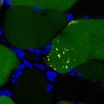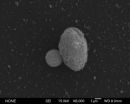(Press-News.org) This news release is available in French.
The French National Institute of Health and Medical Research (Inserm) is currently the leading biomedical research organisation in Europe, and plays a key role in developing European research. To mark its 50th anniversary, Inserm wanted to assess the perceptions of Europeans regarding biomedical research.
To create this European panorama, Ipsos carried out an Internet survey of over 4,000 Europeans (with 1,001 French, 1,004 German, 1,001 Italians and 1,005 British respondents) from 10 to 23 January 2014. Representative samples were obtained from each country involved using quota sampling.
According to results, health is still the area of research news that interests the greatest number of Europeans. This survey confirms the genuine confidence of Europeans regarding biomedical research and its players, at a time of moroseness and cynicism. Although they are aware that they do not understand all of its ramifications, they see it as a source of hope for themselves and their children, as well as a source of pride for their country.
The most memorable medical innovations for Europeans in the last 50 years have been organ transplants, medical imaging, and gene therapies.
Health, a theme of major interest for Europeans
Europeans show a particular interest in news items about health research, Inserm's special area of interest. Indeed, nearly one out of two Europeans (45%) mentions health as the area of research news that most interests him/her, far ahead of information technology and the new technologies (21%), environment (14%), human sciences (9%), energy (6%) or space (5%).
Health-related research news stimulates particular interest among the French (53%) and the Germans (48%).
Health research also interests more women (58%, compared with 32% of men) and people aged 35 years or older (51%, compared with 33% of those under 35).
Biomedical research is above all a synonym for hope
For Europeans, research mainly evokes the word "hope" (34% put it in first place, 67% among the first three). The French are the most likely to consider that biomedical research represents hope for them more than anything else.
82% of Europeans believe that biomedical research will enable their children to live better than they do today (22% say "much better").
A high degree of confidence in researchers
Physicians and researchers in biomedical sciences remain trusted intermediaries in the eyes of Europeans: where a public health problem occurs, 45% of those surveyed named physicians among the three players that could be most trusted to tell them the truth, and 36% named researchers. 70% of Europeans also trust researchers to challenge opinion if they believe that their scientific research has important consequences for issues affecting society; 66% of Europeans trust researchers to refuse to let innovations arising from their work have negative consequences for public health, and 62% trust them to remain independent and to reject pressure regarding the results of their work.
A limited level of information and knowledge, but a questioning attitude nonetheless
Europeans who were surveyed predominantly admitted that they were not well informed about biomedical research, whether in terms of advances in this area (59% believed they were poorly informed), its consequences for their everyday lives (59%), or popular debates stimulated by some research projects (61%).
Their scientific literacy is also limited. On average, when Europeans were tested on approximately 20 scientific terms, they "really" understood only 4.5 terms. Only one of these was "really" understood by the majority—the term "animal experiments." Finally, the terms "nanoscience," "genome sequencing," viral vector," endocrine disrupters" or "epigenetics" were not understood by the majority of Europeans.
The result of this lack of scientific vocabulary is that Europeans are unable to understand the questions that may be raised by some areas of biomedical research. For these, they put all their faith in the experts and in researchers to "control" things. The results of the survey show that a subject may become part of public debate and generate intense discussion, even though most Europeans know very little about it.
The United States model, and development of European research funding
The USA seems to provide an ideal for Europeans regarding biomedical research: 84% of them name the United States as among the three most advanced countries in this area. Certainly, this figure primarily reflects the attractiveness of the USA to many Europeans. It also highlights the attraction of American laboratories for European students and researchers, explained by the large budgets and influence and its proven supremacy in terms of numbers of publications and returns. Germany, Great Britain and France come next (mentioned by 41%, 39% and 29% of respondents, respectively).
In order for Europe and their countries to keep their positions in this ranking, Europeans seem to believe that developments in the modes of research funding are essential: 88% judge it necessary for the private sector to become more involved in funding scientific research. 94% of Europeans surveyed nonetheless strongly advocate that a substantial proportion of biomedical research be funded by the State.
Finally, even though American biomedical research remains the model for many Europeans, 82% of Europeans believe that biomedical research is an area in which their own country can be proud of its results. This is especially the case in France, since 90% of respondents think so.
Organ transplants, medical imaging and gene therapy considered the most important medical innovations in the last 50 years
For Europeans, the most important innovation of the last 50 years is the organ transplant (70% name it among the 5 most important), just ahead of medical imaging (65%) and gene therapy (51%).
Next among the innovations most often mentioned are: the recent development and implantation of the artificial heart, celebrated as an achievement "made in France" (47%), the potential offered by the decoding of the human genome (35%), triple therapy (34%) and reprogramming of stem cells (32%).
The ranking of the most often-mentioned innovations varies with the gender and age of respondents. Nonetheless, women (as well as those under 35 years) were found to be more likely to mention innovations related to reproduction. More women than men are likely to judge oral contraception as a major discovery (33% compared with 21% of men), together with in vitro fertilisation (21% compared with 15%) and epidural anaesthesia (15% compared with 11%). However, Viagra is more often mentioned by men than by women (7% compared with 5%), but nonetheless seems to be the least noteworthy innovation on the list they were offered.
INFORMATION: END
Europeans and biomedical research
An Ipsos survey for Inserm
2014-04-09
ELSE PRESS RELEASES FROM THIS DATE:
No compromises: JILA's short, flexible, reusable AFM probe
2014-04-09
JILA researchers have engineered a short, flexible, reusable probe for the atomic force microscope (AFM) that enables state-of-the-art precision and stability in picoscale force measurements. Shorter, softer and more agile than standard and recently enhanced AFM probes, the JILA tips will benefit nanotechnology and studies of folding and stretching in biomolecules such as proteins and DNA.
An AFM probe is a cantilever, shaped like a tiny diving board with a small, atomic-scale point on the free end. To measure forces at the molecular scale in a liquid, the probe attaches ...
Green is good
2014-04-09
As unlikely as it sounds, green tomatoes may hold the answer to bigger, stronger muscles.
Using a screening method that previously identified a compound in apple peel as a muscle-boosting agent, a team of University of Iowa scientists has now discovered that tomatidine, a compound from green tomatoes, is even more potent for building muscle and protecting against muscle atrophy.
Muscle atrophy, or wasting, is caused by aging and a variety of illnesses and injuries, including cancer, heart failure, and orthopedic injuries, to name a few. It makes people weak and fatigued, ...
The surgical treatment of bilateral benign nodular goiter
2014-04-09
About 100.000 thyroid operations are performed in Germany each year, a large percentage of them for the treatment of benign thyroid disease (euthyroid nodular goiter). In the current issue of Deutsches Ärzteblatt International (Dtsch Arztebl Int 2014; 111 (10): 161-8), Nada Rayes and colleagues suggest a paradigm shift in the treatment of such lesions. The article is accompanied by an editorial by Roland Gärtner.
Radical surgery has become much more common in the past few years and has been motivated by a desire to prevent recurrences. From 2006 to 2008, the percentage ...
One of the last strongholds for Western chimpanzees
2014-04-09
This news release is available in German. When Liberia enters the news it is usually in the context of civil war, economic crisis, poverty or a disease outbreak such as the recent emergence of Ebola in West Africa. Liberia's status as a biodiversity hotspot and the fact that it is home to some of the last viable and threatened wildlife populations in West Africa has received little media attention in the past. This is partly because the many years of violent conflict in Liberia, from 1989 to 1997 and from 2002 to 2003, thwarted efforts of biologists to conduct biological ...
The Lancet: Small cash incentives dramatically improve hepatitis B vaccination rates among injecting drug users
2014-04-09
Small financial incentives, totalling as little as £30, can dramatically increase the likelihood of people who inject drugs completing a course of hepatitis B virus (HBV) vaccination, according to new research published in The Lancet.
Researchers in the UK found that people undergoing treatment for heroin addiction who received a maximum total of £30 supermarket vouchers in equal or graduated instalments in return for full compliance with a regimen of three HBV vaccine injections were at least 12 times as likely to complete the course within 28 days compared to those ...
Processing new information during sleep compromises memory
2014-04-09
Washington, DC — New research appearing in the April 9 issue of the Journal of Neuroscience highlights the important role sleep plays in strengthening and maintaining the accuracy of a memory and hints at why the brain shuts out sensory information during periods of deep sleep. The study found that introducing new odor information to an animal while it sleeps compromises its ability to remember the difference between new and previously encountered smells while awake.
During sleep, the brain performs a number of important repair and maintenance duties that are necessary ...
Language structure ... you're born with it
2014-04-09
Humans are unique in their ability to acquire language. But how? A new study published in the Proceeding of the National Academy of Sciences shows that we are in fact born with the basic fundamental knowledge of language, thus shedding light on the age-old linguistic "nature vs. nurture" debate.
THE STUDY
While languages differ from each other in many ways, certain aspects appear to be shared across languages. These aspects might stem from linguistic principles that are active in all human brains. A natural question then arises: are infants born with knowledge of how ...
Lead continues to be a serious threat to California condor populations
2014-04-09
The California condor was one of the first species to be listed under the Endangered Species Preservation Act in 1966 when the population was reduced to a handful of birds. Through a massive collaborative effort that included fieldwork and breeding in zoos, the condor population has grown to more than 400 birds, more than half of which are now free-flying in the wild. Unfortunately, there is overwhelming evidence that lead poisoning from accidental ingestion of spent ammunition is the leading cause of death in the wild population, and this may prevent the establishment ...
Identified a new possible target to combat muscle wasting
2014-04-09
In the study published today in the Journal of Clinical Investigation (JCI), one of the journals with highest impact in experimental medicine, the researchers associate the activity of the DOR protein with muscle atrophy and point to DOR as a plausible target against which to develop a drug to prevent muscle deterioration in certain diseases.
DOR (Diabetes- and Obesity-regulated gene), also known as TP53INP2, is a protein involved in autophagy, a quality control process that ensures cells stay healthy. The researchers have found that increased DOR expression in the muscle ...
UNC researchers show how cancer cells may respond to mechanical force
2014-04-09
April 9, 2014 The push and pull of physical force can cause profound changes in the behavior of a cell. Two studies from researchers working at the UNC Lineberger Comprehensive Cancer Center reveal how cells respond to mechanical manipulation, a key factor in addressing the underlying causes of cancer and other diseases.
The studies, published in Nature Cell Biology and the Journal of Immunology, have their roots in a longtime partnership between the labs of Keith Burridge, PhD, Kenan Professor of Cell Biology and Physiology in the UNC School of Medicine, and Richard ...
LAST 30 PRESS RELEASES:
Fat may play an important role in brain metabolism
New study finds no lasting impact of pandemic pet ownership on human well-being
New insights on genetic damage of some chemotherapies could guide future treatments with less harmful side effects
Gut microbes could protect us from toxic ‘forever chemicals’
Novel modelling links sea ice loss to Antarctic ice shelf calving events
Scientists can tell how fast you're aging from a single brain scan
U.S. uterine cancer incidence and mortality rates expected to significantly increase by 2050
Public take the lead in discovery of new exploding star
What are they vaping? Study reveals alarming surge in adolescent vaping of THC, CBD, and synthetic cannabinoids
ECMWF - delivering forecasts over 10 times faster and cutting energy usage by 1000
Brazilian neuroscientist reveals how viral infections transform the brain through microscopic detective work
Turning social fragmentation into action through discovering relatedness
Cheese may really be giving you nightmares, scientists find
Study reveals most common medical emergencies in schools
Breathable yet protective: Next-gen medical textiles with micro/nano networks
Frequency-engineered MXene supercapacitors enable efficient pulse charging in TENG–SC hybrid systems
Developed an AI-based classification system for facial pigmented lesions
Achieving 20% efficiency in halogen-free organic solar cells via isomeric additive-mediated sequential processing
New book Terraglossia reclaims language, Country and culture
The most effective diabetes drugs don't reach enough patients yet
Breast cancer risk in younger women may be influenced by hormone therapy
Strategies for staying smoke-free after rehab
Commentary questions the potential benefit of levothyroxine treatment of mild hypothyroidism during pregnancy
Study projects over 14 million preventable deaths by 2030 if USAID defunding continues
New study reveals 33% gap in transplant access for UK’s poorest children
Dysregulated epigenetic memory in early embryos offers new clues to the inheritance of polycystic ovary syndrome (PCOS)
IVF and IUI pregnancy rates remain stable across Europe, despite an increasing uptake of single embryo transfer
It takes a village: Chimpanzee babies do better when their moms have social connections
From lab to market: how renewable polymers could transform medicine
Striking increase in obesity observed among youth between 2011 and 2023
[Press-News.org] Europeans and biomedical researchAn Ipsos survey for Inserm



